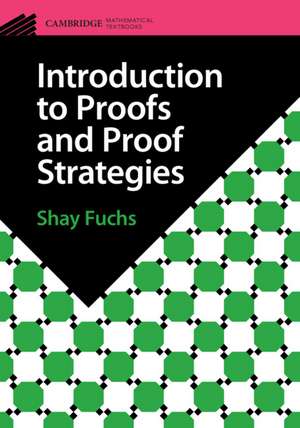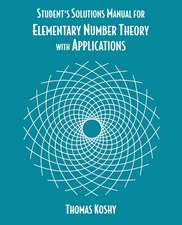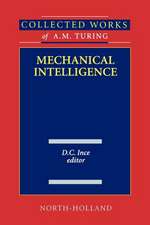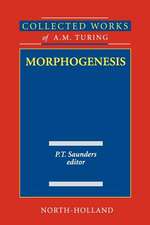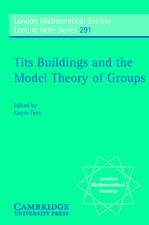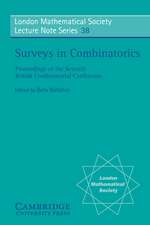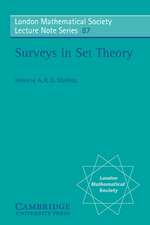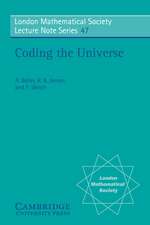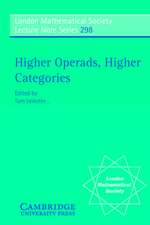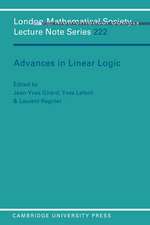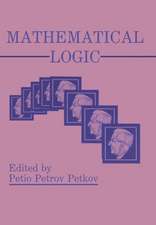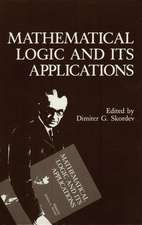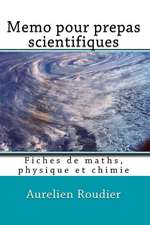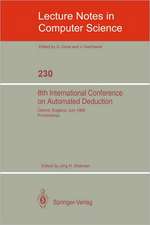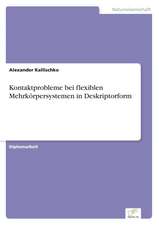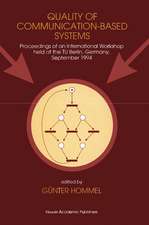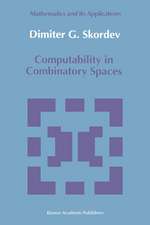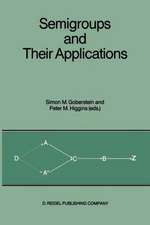Introduction to Proofs and Proof Strategies: Cambridge Mathematical Textbooks
Autor Shay Fuchsen Limba Engleză Paperback – 21 iun 2023
Preț: 275.51 lei
Nou
Puncte Express: 413
Preț estimativ în valută:
52.72€ • 55.18$ • 43.88£
52.72€ • 55.18$ • 43.88£
Carte disponibilă
Livrare economică 10-24 martie
Livrare express 21-27 februarie pentru 39.10 lei
Preluare comenzi: 021 569.72.76
Specificații
ISBN-13: 9781009096287
ISBN-10: 1009096281
Pagini: 349
Dimensiuni: 178 x 253 x 17 mm
Greutate: 0.62 kg
Editura: Cambridge University Press
Colecția Cambridge University Press
Seria Cambridge Mathematical Textbooks
Locul publicării:New York, United States
ISBN-10: 1009096281
Pagini: 349
Dimensiuni: 178 x 253 x 17 mm
Greutate: 0.62 kg
Editura: Cambridge University Press
Colecția Cambridge University Press
Seria Cambridge Mathematical Textbooks
Locul publicării:New York, United States
Cuprins
Contents; Preface; Part I. Core Material; 1. Numbers, Quadratics and Inequalities; 2. Sets, Functions and the Field Axioms; 3. Informal Logic and Proof Strategies; 4. Mathematical Induction; 5. Bijections and Cardinality; 6. Integers and Divisibility; 7. Relations; Part II. Additional Topics; 8. Elementary Combinatorics; 9. Preview of Real Analysis – Limits and Continuity; 10. Complex Numbers; 11. Preview of Linear Algebra; Notes; References; Index.
Recenzii
'Every student in the sciences should be exposed to the basic language of modern mathematics, and standard courses such as calculus or linear algebra do not play this role. The ideal textbook for such a course should not attempt to be encyclopedic and should not assume special prerequisites. It should cover a carefully chosen selection of topics efficiently, engagingly, thoroughly, without being overbearing. Fuchs' text fits this description admirably. The level is right, the math is rock solid, the writing is very pleasant. The book talks to the reader, without ever sounding patronizing. A vast selection of problems, many including solutions, will be splendidly helpful both in a classroom setting and for self-study.' Paolo Aluffi, Florida State University
'This well-written text strikes a good balance between conciseness and clarity. Students are led from looking more deeply into familiar topics, such as the quadratic formula, to an understanding of the nature, structure, and methods of proof. The examples and problems are a strong point. I look forward to teaching from it.' Eric Gottlieb, Rhodes College
'Fuchs' text is an excellent addition to the 'transitions to proof' literature. I will use it when I next teach such a course. Except for the excellent 'Additional Topics' sections, the content is standard, but the spiraling presentation and helpful narrative around proofs are what truly elevate this text. Fuchs has made every attempt to connect the structure and rigor of mathematics with the intuition of the student. For example, the notion of function arises in three different chapters, with two increasingly rigorous 'provisional definitions,' before a complete definition is given within a wider discussion of relations. I anticipate this approach resonating with students. Fuchs' Chapter 3, which introduces logic and proof strategies, is the most usable presentation of the material I have seen or used. The practice of mathematics and mathematical thinking is communicated well, while opportunities for confusion and obfuscation via a blizzard of symbols are minimized.' Ryan Grady, Montana State University
'This book is a must-have resource for an undergraduate mathematics student or interested reader to learn the fundamental topics in how to prove things. The text is thorough and of top quality, yet it is conversational and easy to absorb. Maybe the most important quality, it offers advice about how to approach problems, making it perfect for an introduction to proofs class.' Andrew McEachern, York University, Canada
'This is a great choice of textbook for any course introducing undergraduates to mathematical proofs. What makes this book stand out are the early chapters, as well as the 'Additional Topics,' both with accompanying exercises. The book begins by gently introducing proof-based thinking by posing well-motivated prompts and exercises concerning familiar arithmetic of real numbers and the integers. It then introduces fields as a playground to practice working with axioms and drawing (sometimes surprising) conclusions from them. The book proceeds with introducing formal logic, mathematical induction, set theory, and relations on sets. The book's design nicely enables framing classes around a choice sampling among the abundant exercises. The book's 'Additional Topics' can serve to engage those students with a brimming imagination and who are already familiar with basic notions of proofs.' David Ayala, Montana State University
'Fuchs' Introduction to Proofs and Proof Strategies is an excellent textbook choice for an undergraduate proof-writing course. The author takes a friendly and conversational approach, giving many worked examples throughout each section. Furthermore, each section is replete with exercises for the reader, along with fully worked solutions at chapter's end. This is exactly the 'get your hands dirty' approach students and readers will benefit greatly from!' Frank Patane, Samford University
'The book Introduction to Proofs and Proof Strategies by Shay Fuchs takes the problem-solving approach to the forefront by accompanying the reader in the construction and deconstruction of proofs through numerous examples and challenging exercises. The fundamental principles of mathematics are introduced in a creative and innovative way, making learning an enjoyable journey.' Roberto Bruni, Università di Pisa
'This textbook is easy to read and designed to enhance students' problem-solving skills in their first year of university. The book really stands out due to the variety and quality of exercises at the end of each chapter. The latter chapters dive into more advanced topics for interested students.' Marina Tvalavadze, University of Toronto Mississauga
'This well-written text strikes a good balance between conciseness and clarity. Students are led from looking more deeply into familiar topics, such as the quadratic formula, to an understanding of the nature, structure, and methods of proof. The examples and problems are a strong point. I look forward to teaching from it.' Eric Gottlieb, Rhodes College
'Fuchs' text is an excellent addition to the 'transitions to proof' literature. I will use it when I next teach such a course. Except for the excellent 'Additional Topics' sections, the content is standard, but the spiraling presentation and helpful narrative around proofs are what truly elevate this text. Fuchs has made every attempt to connect the structure and rigor of mathematics with the intuition of the student. For example, the notion of function arises in three different chapters, with two increasingly rigorous 'provisional definitions,' before a complete definition is given within a wider discussion of relations. I anticipate this approach resonating with students. Fuchs' Chapter 3, which introduces logic and proof strategies, is the most usable presentation of the material I have seen or used. The practice of mathematics and mathematical thinking is communicated well, while opportunities for confusion and obfuscation via a blizzard of symbols are minimized.' Ryan Grady, Montana State University
'This book is a must-have resource for an undergraduate mathematics student or interested reader to learn the fundamental topics in how to prove things. The text is thorough and of top quality, yet it is conversational and easy to absorb. Maybe the most important quality, it offers advice about how to approach problems, making it perfect for an introduction to proofs class.' Andrew McEachern, York University, Canada
'This is a great choice of textbook for any course introducing undergraduates to mathematical proofs. What makes this book stand out are the early chapters, as well as the 'Additional Topics,' both with accompanying exercises. The book begins by gently introducing proof-based thinking by posing well-motivated prompts and exercises concerning familiar arithmetic of real numbers and the integers. It then introduces fields as a playground to practice working with axioms and drawing (sometimes surprising) conclusions from them. The book proceeds with introducing formal logic, mathematical induction, set theory, and relations on sets. The book's design nicely enables framing classes around a choice sampling among the abundant exercises. The book's 'Additional Topics' can serve to engage those students with a brimming imagination and who are already familiar with basic notions of proofs.' David Ayala, Montana State University
'Fuchs' Introduction to Proofs and Proof Strategies is an excellent textbook choice for an undergraduate proof-writing course. The author takes a friendly and conversational approach, giving many worked examples throughout each section. Furthermore, each section is replete with exercises for the reader, along with fully worked solutions at chapter's end. This is exactly the 'get your hands dirty' approach students and readers will benefit greatly from!' Frank Patane, Samford University
'The book Introduction to Proofs and Proof Strategies by Shay Fuchs takes the problem-solving approach to the forefront by accompanying the reader in the construction and deconstruction of proofs through numerous examples and challenging exercises. The fundamental principles of mathematics are introduced in a creative and innovative way, making learning an enjoyable journey.' Roberto Bruni, Università di Pisa
'This textbook is easy to read and designed to enhance students' problem-solving skills in their first year of university. The book really stands out due to the variety and quality of exercises at the end of each chapter. The latter chapters dive into more advanced topics for interested students.' Marina Tvalavadze, University of Toronto Mississauga
Notă biografică
Descriere
With a conversational style and no prerequisites, this transition to advanced mathematics emphasizes creative thinking and problem-solving.
